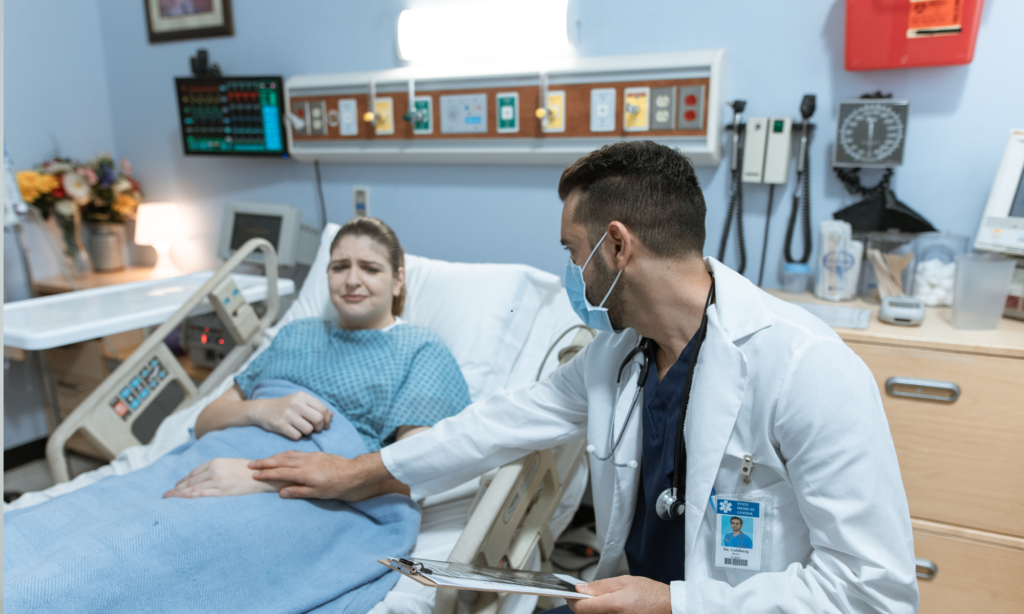
Surgery is swift, but recovery is hard. You often don’t realize the full impact of the procedure until the stitches start to sting. Recovery after surgery is a step toward healing, but its success often depends on navigating uncertainties you can’t always prepare for.
Aside from physical healing, the following changes make surgery recovery a life-changing phase in someone’s life:
- The sudden shift from being independent to reliance on the help of family members can be frustrating.
- The isolation of doing boring things all because your body is still recovering.
- Anxiety and depression may start to loom especially with the loss of income as the bills start to pile up.
- The looming hopelessness of not being capable of doing anything, getting back on your feet and going back to your usual life.
To say that recovery is a test of patience, faith and resilience is an understatement. Therefore, it’s very crucial to see where you are in your recovery, what to expect, and how you can power through the vulnerability of post surgery recovery.
How is patient recovery after surgery classified?
To move forward, it’s crucial to identify where you are in your recovery journey. Patient recovery after surgery is typically classified into phases. Every phase corresponds to the level of complexity of the surgery and the patient’s health condition. A typical recovery classification involves::
- Phase 1: Immediate Postoperative Period – This is the period immediately following surgery, often referred to as the “post-anesthesia care unit” (PACU) phase which involves close monitoring of vital signs, pain management and prevention of complications. .
- Phase 2: Acute Postoperative Period – This phase involves staying in the hospital or recovery facility.to monitor vital signs, wound care, close monitoring for any postoperative complications.
- Phase 3: Convalescent Period – This is the phase of home recovery that involves continued wound care, pain management, follow-up checkups with doctors, and rehabilitation.
What makes recovery tricky is it is not definite and surgeons and medical doctors are also in the dark due to several factors. These factors are directly linked to the patient’s complexity of the surgery classification and their duration:
- Type of Surgery: Major surgeries, like heart bypass, typically require longer recovery periods than minor procedures.
- Patient’s Overall Health: Pre-existing health conditions, age, and overall health greatly affects recovery after surgery.
- Complications: Complications after the surgery increase the recovery time of each patient. In some cases, they are admitted in the hospital longer for observation.
- Adherence to Postoperative Instructions: Following the surgeon’s recommendations, such as taking medications, avoiding strenuous activity, and attending follow-up appointments, is crucial for optimal recovery.
What are Enhanced Recovery After Surgery (ERAS) Protocols?

Medical doctors and healthcare facilities are now implementing ERAS protocols to speed up or optimize a patient’s postoperative recovery process. They aim to reduce postoperative complications, shorten hospital stays, and improve the quality of patient recovery. These include:
- Early mobilization or rehab to help the body heal faster
- Pain management strategies
- Minimizing or managing stress response for faster wound healing
- Optimal fluid management
- Early oral intake
Understanding these stages helps patients like you to see the value of adhering to your surgeon’s post operative instructions for faster and proper recovery. It also shows you where you are in your healing journey and what are the next steps ahead.
How to Navigate Mental and Emotional Recovery After Surgery
The most common concern among patients is how long is post surgery recovery and how fast can they go back to their usual life.However, as human as we are, we are fragile human beings with bodies that take time to heal on their own.
As uncontrollable as it may seem, your mind and strong will to recover and heal are very crucial in your surgery recovery. Though full recovery may seem too far fetched, starting the following steps now can eventually get you there if you start today.
#1 Don’t Invalidate but Acknowledge Your Emotional Experience

Your feelings towards your recovery are not a sign of weakness but a testament to your human complexity. Getting sick is a vulnerable human experience and it can be a life-altering one especially with the shift in perspective on one’s health.
Your emotions during recovery come in different layers and deserve compassionate recognition not only from your family and friends but also from yourself. While your body recuperates, take the opportunity to create space for:
- Journaling your emotional experiences
- Expressing vulnerabilities with your loved ones or through creative outlets
- Practicing emotional validation and positive self affirmations.
- Curate your social media newsfeed with positive and recovery-supportive content.
#2 Build a Compassionate Support Network

The hardest part of recovery is to see everyone around you move forward while you feel stuck in bed waiting for your body to recover fully. Such experience creates isolation that can intensify your emotional challenges.
However, just because you’re in recovery doesn’t mean you can’t cultivate connections that offer understanding, not just sympathy. You may seek support from:
- Healthcare professionals
- Support groups relevant to your condition
- Trusted family and friends
- Mental health counselors
- Online community specific to your condition
#3 Develop Mindful Coping Strategies

Recovery is a journey with ups and downs. Some days feel manageable, while others might test your patience and resolve. This ebb and flow is a natural response, especially when healing takes longer than expected.
In times, when days seem to take its toll on your mental health, it pays to consider the following practical approaches include:
- Meditation or active meditation like walking
- Gentle breathing exercises
- Visualization techniques
- Enjoy light hobbies or discover a new one
- Try simple but fun home activities like watching movies or reading books
#4 Reframe Your Recovery Narrative
Christopher Reeve once said, “Once you choose hope, anything’s possible.”. Reeve is a renowned actor known for his role in the Superman film series who was paralyzed from the neck down after a horse riding accident. He is among the few actors who helped transform disability rights.
Your surgical experience is not a setback but a transformative journey of healing and self-discovery. Beyond the pain and its toll on your mental health, recovery after surgery shapes your perspective differently than those who haven’t experienced it at all.
It may be hard to feel grateful for your situation during recovery but there are patients that were not even able to reach the recovery stage at all. Amid all the slow days and pain, one string of silver lining is your chance to get better which is not even available for others who have your condition.
According to studies, the power of gratitude has contributed to how to recover after surgery faster by helping patients mentally which consequently improves the quality or speeds up their recovery. Patients were reported to have less inflammation which improved their overall progress in recovery.
Your daily habits can greatly impact your mindset and mental health throughout recovery. Whether you feel down or not, It’s best to develop a habit out of the following practices to cultivate the attitude of gratitude while you heal your wounds and your body recuperates::
- Zoom into your personal growth perspectives as you overcome the limitations of your recovered body like being able to show up consistently on rehab sessions
- Celebrating small wins by finishing your required medications or finally being able to stand or allowed to eat a specific food due to diligent adherence to doctor’s orders
- Recognizing your inner strength the moment you begin with your surgery and taking one step further with your recovery to fully heal
- Cultivating gratitude practices like writing a gratitude journal can help reframe your recovery narrative
- Holding on to hope and surrounding yourself with things that will help you push through full recovery no matter how long or hard it gets
#5 Practice Radical Self-Compassion

Your loved ones can only do so much to make you feel better. It’s how you treat and see yourself that weighs more than the love others can put in you. Healing requires gentleness and kindness with yourself because you’re doing your best regardless if that’s the best for others or not.
Treat yourself with the same kindness you would offer a beloved friend navigating similar challenges. Self-compassion looks like:
- Patience with your process no matter if its slow or long
- Releasing unrealistic expectations and accepting what your bodies capabilities at this moment
- Honoring your unique healing timeline and focusing on your progress rather than comparing it with others
- Celebrating incremental progress and crediting your efforts and grit towards recovery
Be proud of how much you’re trying to get better. Your healing journey is a phase that will definitely help you grow mentally and psychologically even if you don’t feel or realize it yet.
Let Essential Wellness Support Your Holistic Recovery
You don’t need to navigate the struggles of recovery on your own. Especially when your surgery affects your mobility, having someone to prepare your needs and support your recovery is crucial. Post-surgery recovery is easier with expert home care.
Essential Wellness is a home health care agency in South Florida dedicated to supporting recovering patients at home with mobility issues, elderly care, and home-based rehabilitation. Our specialized services include:
- Personal Support (Daily living support)
- Life Skills (Companionship)
- Respite Care / Skilled Respite
- Analysis and Behavior Assistant Services (ABA)
- Nursing and Private Duty Nurse Services
- Speech, Occupational, and Physical Therapy
- Homemaker & Companion Services
- Specialized Mental Health Support
Schedule a free consultation today and let us guide you through your recovery journey with compassion and expertise. Having a medically-trained professional around will make the transition from hospital care to home care easier for you.
At the same time, you can focus on sleeping and recovering your energy while someone takes off everything you need from food to medicine or IV preparation.

